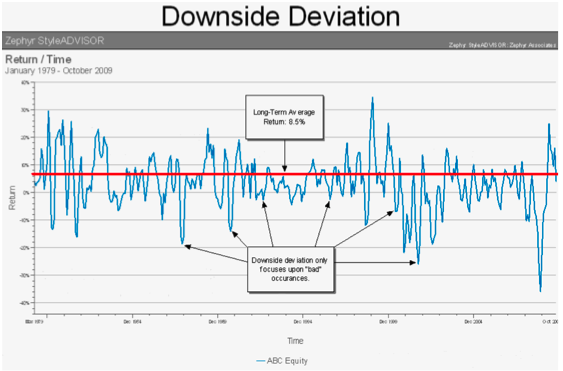
If you are thinking of a career involving supply chain management, here are some things to keep in mind. There are many supply chains and each industry has its own supply chain. For example, a supply chain manager who is working for a manufacturing company would not be the right choice for someone who is interested in working for a wholesale or retail company.
Characteristics of a successful supply chain manager
Successful supply chain managers are open-minded learners who are willing to try new things and adapt to changing environments. They are quick to grasp the nuances and take failures as opportunities to learn. They love the challenge of undertaking new tasks and are quick to grasp the essence of anything. Their curiosity and insatiable hunger for knowledge fuels their passion to learn more.
Managers of supply chains must not be micromanagers, but they should excel at taking strategic risks. While risks are an inevitable part of growth, they should be supported by data. This requires that you are strategic and analytical and not reactive. Inflexibility impedes success. It can also frustrate supply chain managers.

The management of a supply-chain is complex and always changing. Supply chain managers need to be aware of market trends and proactive in implementing new technology. They also must be able to effectively communicate with people with advanced technological knowledge.
A bachelor's degree is required in supply chain management.
A bachelor's degree for supply chain management provides students with a foundation in leadership, strategic management and business administration. This degree also provides the necessary skills to use common software applications. A bachelor's degree in supply chain management can be earned at a very affordable cost. In 2020, in-state students paid an average of $105,560 per a year for a full program at four-year public universities, as compared to $37.650 at a private university. You can get financial aid to lower this amount, and federal student loan can help you finance your degree.
An accredited university may offer an online degree in supply-chain management. This can be a great option. This program offers coursework in international supply chains, global supplies chains, and business decisions. Additional coursework includes operational strategies and sustainability in global supplies chains. The program's cost is $688 per hour.
What are the typical duties of a supply manager?
The organization and management of a company’s supply-chain is the responsibility for supply chain managers. They manage inventories, plan product flow, and devise and implement cost-saving processes. They manage third-party logistics providers and identify waste. They create monthly, weekly, or daily reports based on their performance metrics.

Supply chain managers work 40 hours per week. They are usually located in business settings and sometimes away from the manufacturing floor. The role requires a deep understanding of the business and operations as well as all aspects of the organization. They must be comfortable with data and people. You might be a good fit for a job as a supply chain manager if you are passionate about following procedures and thinking creatively.
A supply chain manager earns slightly more than a director in procurement. However, the two roles require similar skills, knowledge and abilities in logistics, procedures, as well as customer service.
FAQ
What can a manager do to improve his/her management skillset?
Good management skills are essential for success.
Managers should monitor the performance and progress of their subordinates.
You must act quickly if you notice that your subordinate isn’t performing to their standards.
It is important to be able identify areas that need improvement and what can be done to improve them.
What are the steps involved in making a decision in management?
The decision-making process of managers is complicated and multifaceted. It involves many elements, including analysis, strategy. planning. implementation. measurement. evaluation. feedback.
The key thing to remember when managing people is that they are human beings just as you are and therefore make mistakes. You are always capable of improving yourself, and there's always room for improvement.
This video explains the process of decision-making in Management. We discuss different types of decisions as well as why they are important and how managers can navigate them. The following topics will be covered:
How to manage employees effectively?
Effectively managing employees means making sure they are productive and happy.
This includes setting clear expectations for their behavior and tracking their performance.
Managers need clear goals to be able to accomplish this.
They should communicate clearly to staff members. They also need to make sure that they discipline and reward the best performers.
They should also keep records of all activities within their team. These include:
-
What was the result?
-
How much work was put in?
-
Who did it all?
-
Was it done?
-
Why did it happen?
This information can be used for monitoring performance and evaluating results.
Statistics
- Hire the top business lawyers and save up to 60% on legal fees (upcounsel.com)
- The average salary for financial advisors in 2021 is around $60,000 per year, with the top 10% of the profession making more than $111,000 per year. (wgu.edu)
- Our program is 100% engineered for your success. (online.uc.edu)
- 100% of the courses are offered online, and no campus visits are required — a big time-saver for you. (online.uc.edu)
- As of 2020, personal bankers or tellers make an average of $32,620 per year, according to the BLS. (wgu.edu)
External Links
How To
How can you implement Quality Management Plan (QMP).
Quality Management Plan (QMP), which was introduced in ISO 9001:2008, provides a systematic approach to improving processes, products, and services through continual improvement. It focuses on the ability to measure, analyze and control processes and customer satisfaction.
The QMP is a standard method used to ensure good business performance. The QMP aims to improve the process of production, service delivery, and customer relationship. QMPs should encompass all three components - Products and Services, as well as Processes. The QMP that only addresses one aspect of the process is called a Process QMP. When the QMP focuses on a Product/Service, it is known as a "Product" QMP. If the QMP focuses on Customer Relationships, it's called a "Product" QMP.
There are two key elements to implementing a QMP: Strategy and Scope. These elements are as follows:
Scope: This determines the scope and duration of the QMP. This scope can be used to determine activities for the first six-months of implementation of a QMP in your company.
Strategy: This describes how you will achieve the goals in your scope.
A typical QMP includes five phases: Design, Planning, Development and Implementation. Each phase is described below:
Planning: In this stage the QMP's objectives and priorities are established. To understand the expectations and requirements of all stakeholders, the project is consulted. Next, you will need to identify the objectives and priorities. The strategy for achieving them is developed.
Design: During this stage, the design team develops the vision, mission, strategies, and tactics required for the successful implementation of the QMP. These strategies are executed by creating detailed plans.
Development: Here, the development team works towards building the necessary capabilities and resources to support the implementation of the QMP successfully.
Implementation: This involves the actual implementation of the QMP using the planned strategies.
Maintenance: The maintenance of the QMP is an ongoing task.
Additionally, the QMP should include additional items:
Stakeholder Involvement: Stakeholders are important for the success of the QMP. They need to be actively involved in the planning, design, development, implementation, and maintenance stages of the QMP.
Project Initiation. It is important to understand the problem and the solution in order to initiate any project. This means that the initiator should know why they want something done and what they hope for from the end result.
Time Frame: The time frame of the QMP is very critical. A simple version is fine if you only plan to use the QMP for a brief period. If you're looking to implement the QMP over a longer period of time, you may need more detailed versions.
Cost Estimation. Cost estimation is another crucial component of QMP. You can't plan without knowing how much money it will cost. It is therefore important to calculate the cost before you start the QMP.
QMPs are not only a document, but also a living document. This is the most important aspect of QMPs. It can change as the company grows or changes. It should be reviewed on a regular basis to ensure that it is still meeting the company's needs.